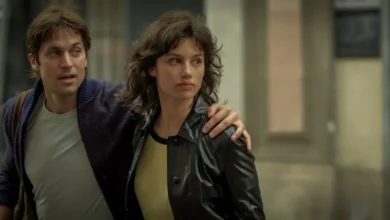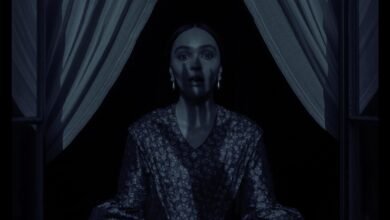‘Queer’ Review: A Mesmerizing, Introspective Story of Longing and Identity
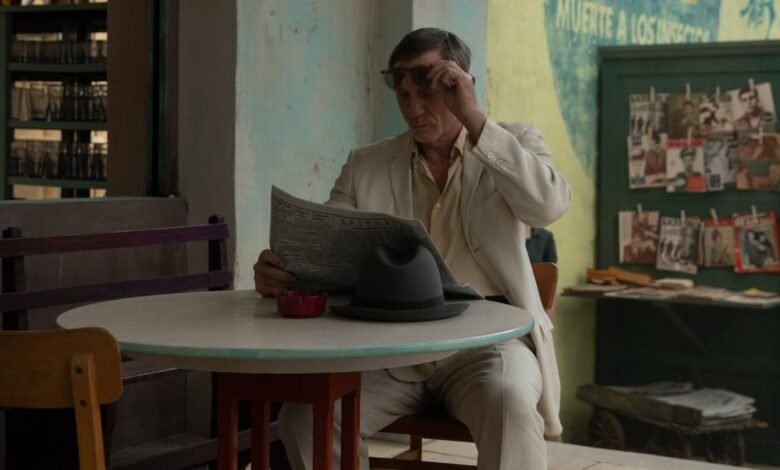
Luca Guadagnino has already blown audiences away this year with the release of Challengers back in April, a sexy and stylish tennis movie that received high praise for its performances, direction and cinematography. His second feature of the year, Queer, stars Daniel Craig and Drew Starkey and has been adapted from the short book of the same name by author William S. Burroughs. It again sees Guadagnino collaborate with writer Justin Kuritzkes who also penned the script for Challengers. Craig plays William Lee, an American expat in his late forties who leads a solitary life amidst a small American community in 1950s Mexico City. However, the arrival of Eugene Allerton (Starkey), a young student, stirs William into finally establishing a meaningful connection with someone. A beautifully introspective and tender portrait of identity and longing, Queer boasts exceptional performances, a delightful slow-burn storyline and stunning cinematography, even if the whole picture doesn’t come together perfectly by the end.
Guadagnino is renowned for his character-focused stories surrounding the human experience, and Queer continues that streak. Focussing heavily on identity, sexuality and longing for connection, the script explores that innate need for meaningful relationships and a sense of belonging so beautifully. William Lee is a complex character who at first comes across as quite confident in himself, with his suave dress sense and outgoing personality as he flits from bar to bar, one tequila shot after the other. However, as the storyline progresses, we learn that he is more lost and unhappy than we first imagined. Struggling to find a meaningful connection, instead succumbing to frequent one night stands and many a drunken and drug-fueled night, William’s journey is a slow-burning and all-encompassing one. Helping the character come to life is a performance from Daniel Craig that may just be career best. Nuanced when he needs to be with equal parts raw emotion and handsome charm, Craig is absolutely transcendent as William Lee, continuing his streak of intriguing projects after completing his run as Bond back in 2021.
Along for the ride with William Lee is love interest Eugene Allerton, whose journey of self-discovery and identity manages to be just as poignant. Eugene immediately catches William’s eye with his handsome allure and mysterious nature, which as time progresses, is both detrimental and complimentary to William’s arc. Behind closed doors, Eugene is quite happy to spend intimate time with William, with the pair’s chemistry and sexual attraction leaping from the screen. However, when the pair are at their local bar, Eugene’s behavior becomes confusing as he spends more time with his female acquaintance and begins a dangerous, damaging game of hot-and-cold with William. Drew Starkey already has a solid backlog of performances behind him, but his turn as Eugene is undeniably his best work. Whether Eugene is making romantic eye contact with William across the bar, adventuring with him deep within the forest or battling his conflicted feelings on his sexuality and relationship with William, Starkey is entirely believable. Craig and Starkey work excellently together, with tangible chemistry and a deep sense of longing pulsing between them.
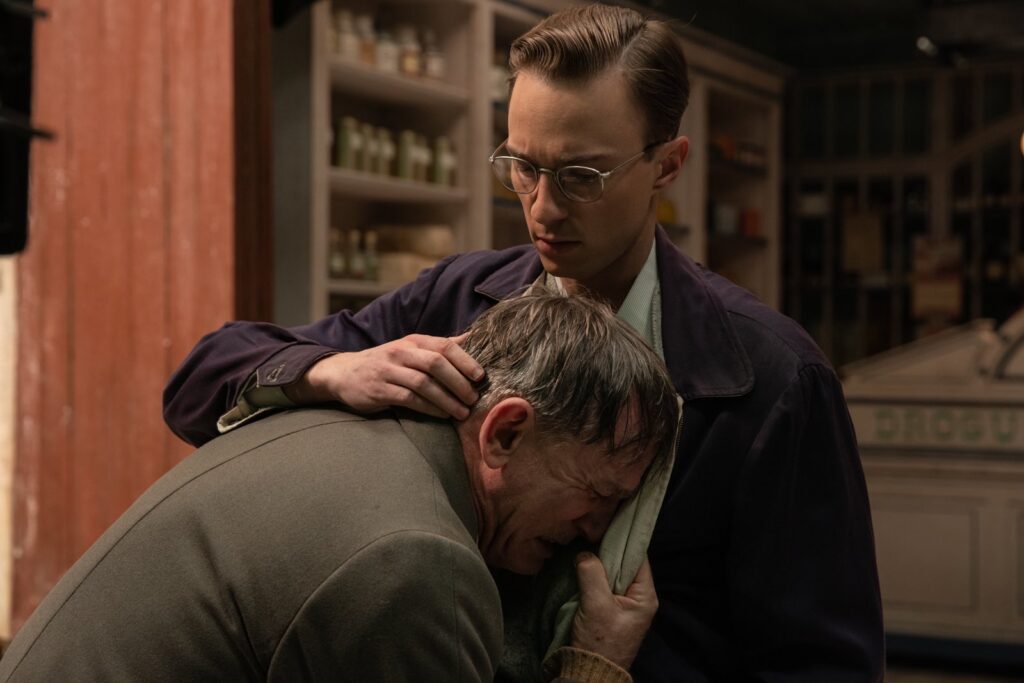
There are many admirable technical aspects when it comes to Queer, which by now is something we expect from any Guadagnino picture. Most notable is the cinematography, which opts for a beautifully soft colour palette, a hypnotic focus on the streets of Mexico City and many shots that intimately linger with a proclivity for closeness, especially when focussing on the connection between William and Eugene. It also has a few moments of trippy visuals that push boundaries and do something unexpected. They may not always feel the most cohesive, but they’re mesmerizing nonetheless. The score, helmed by the iconic Trent Reznor and Atticus Ross, is just as recognizable as their previous efforts on Challengers. The musical cues are incredibly indulgent, with heavy hitting rock beats juxtaposing with the soft, slow nature of the storyline. It’s astonishing how well this approach works. The costume design is more commendable than expected, especially when it comes to Craig’s luxurious suits. Guadagnino and the team informed audiences at the London Film Festival premiere that the approach to William Lee’s wardrobe was that it could ‘all fit in one suitcase’. This doesn’t take away from the sharp, tailored and polished look of his get-up but amplifies it. Visually and audibly, Queer is a marvel.
Queer is likely going to wind up as Guadagnino’s most divisive film since his 2018 rendition of Suspiria, and this is largely down to the film’s third act. The first two acts aren’t by any means conventional, but they play out in a slow-burn, tender and romantic way, focusing on the blossoming bond between William and Eugene. With minimal locations, lingering sequences and communication in the style of deep conversations and passionate glances, its main focus is on displaying the yearning and longing between the pair. Watching their relationship unfold is the movie’s best asset, and is as engrossing as it is intimate. It also has some fun bouts of humor within the script, largely delivered by Jason Schwartzman (The Grand Budapest Hotel) in his hilarious and scene-stealing turn as Joe. However, once the third act comes around with a surprising tonal shift that feels like a mismatch to what has already been delivered, audiences will either be hooked all the more or become lost in the forest that our story journeys us to. Slow-burn romance is traded for trippy visuals and surrealism, not just in aesthetics but in plot. Though the movies main messages and themes still run clear amongst the chaos, it is quite jarring and likely to lose many an audience member. The streets of Mexico City are left behind, being replaced with a deep forest, a sentient sloth and the wildest turn Lesley Manville (Phantom Thread) has ever delivered.
Queer is another strong addition to Guadagnino’s filmography, and also fits tidily into his roster of films for hopeless romantics, those looking to find themselves and those seeking intimacy and connection. The performances are transformative, the cinematography is consistently stunning and the exploration of its poignant themes is second to none. Although the third act is likely to derail the film for many, the script holds enough weight to leave a lasting impression despite this, and those first two acts are utterly magnetic due to the level of filmmaking on display. William Lee reminds us throughout the run-time ‘I’m not Queer. I’m disembodied.’, turning the movie into an encapsulating ghost story of sorts.
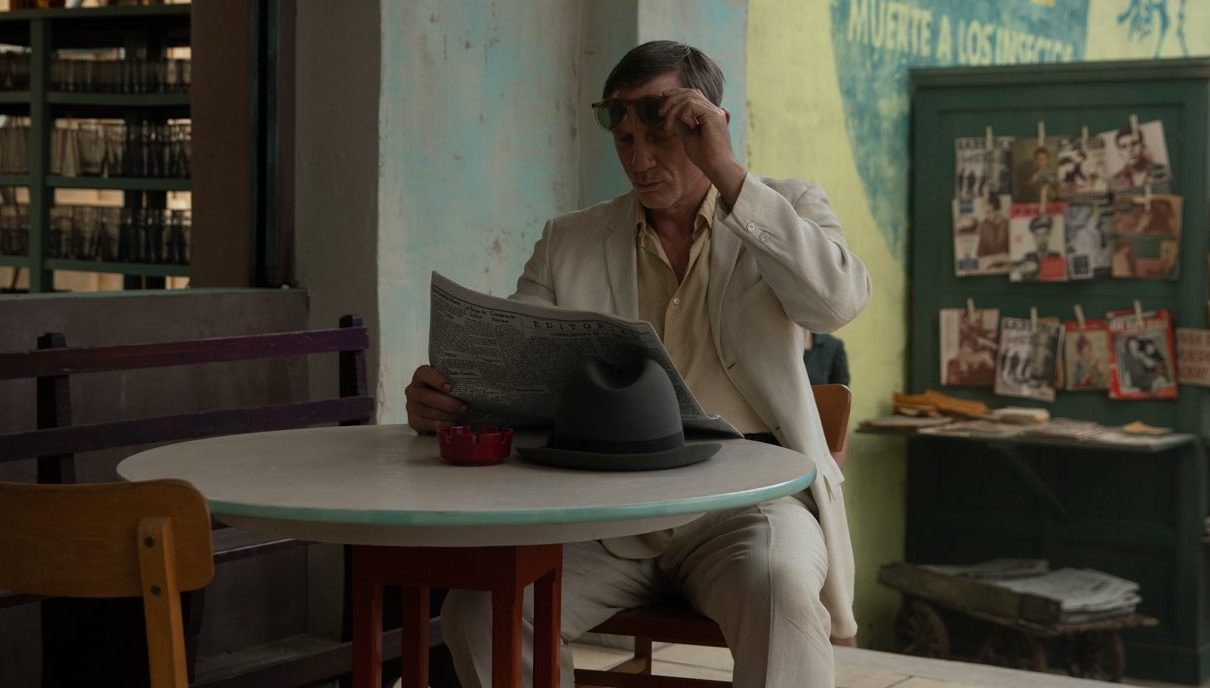
‘Queer’ Review: A Mesmerizing, Introspective Story of Longing and Identity



